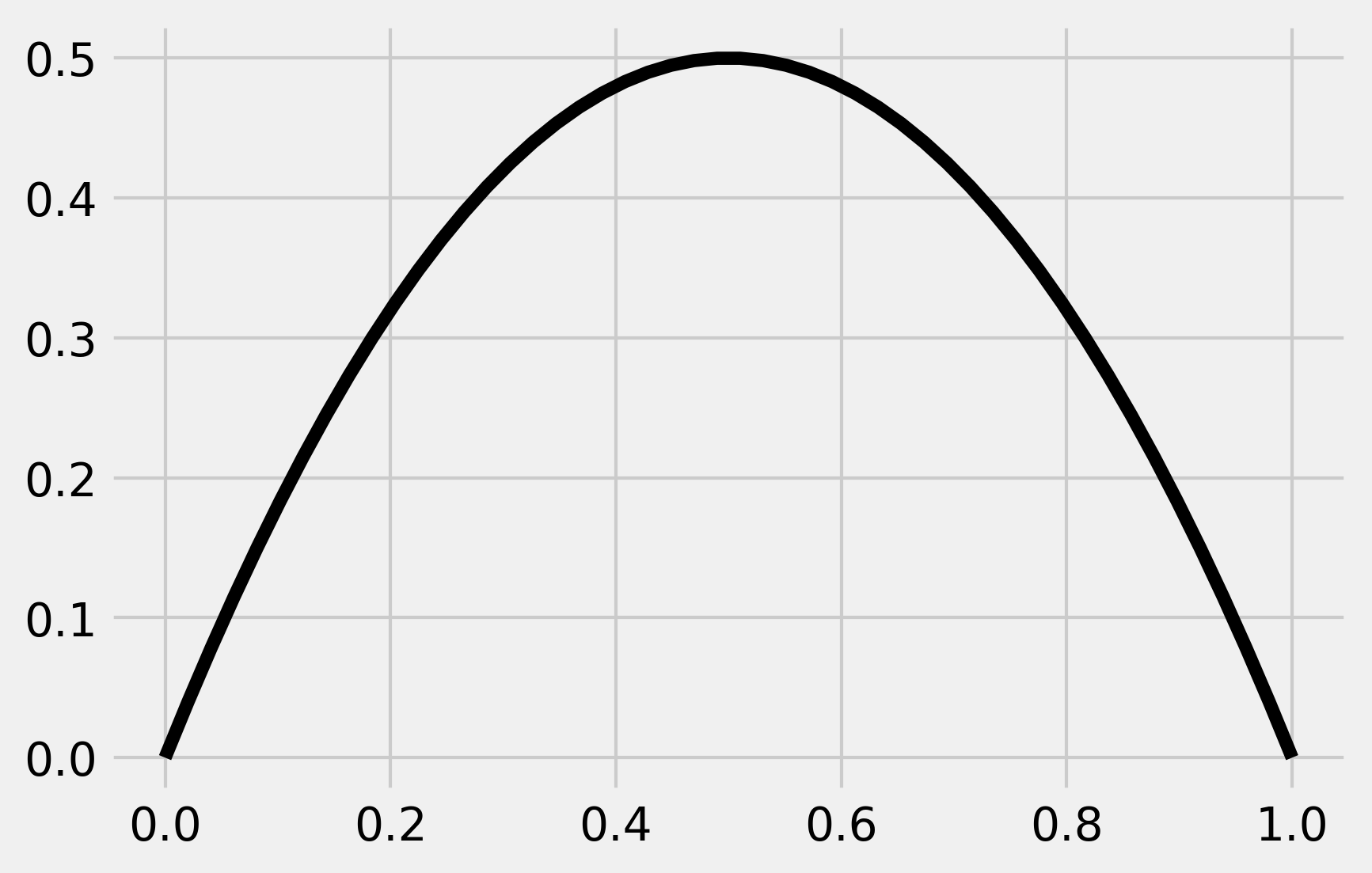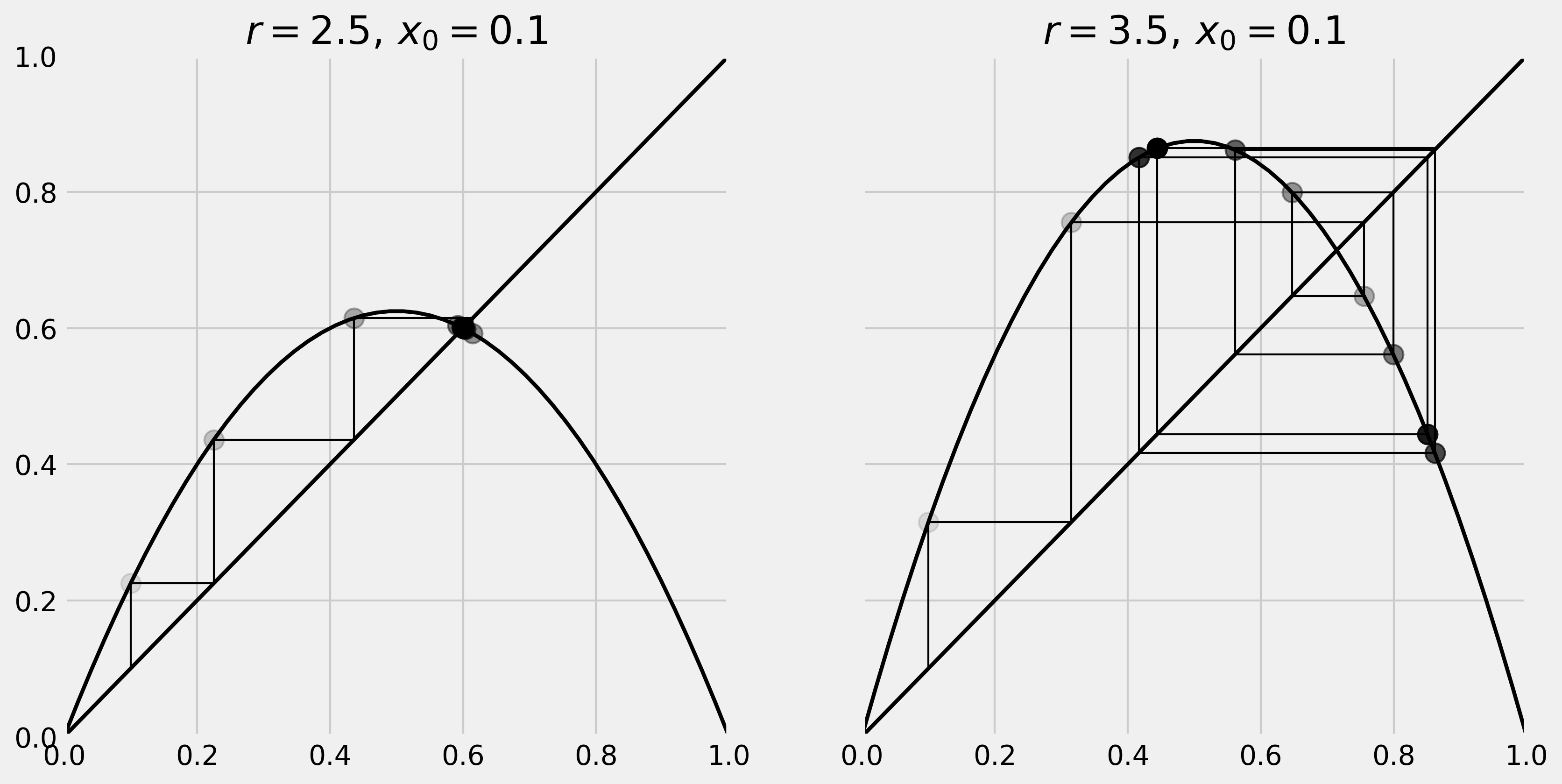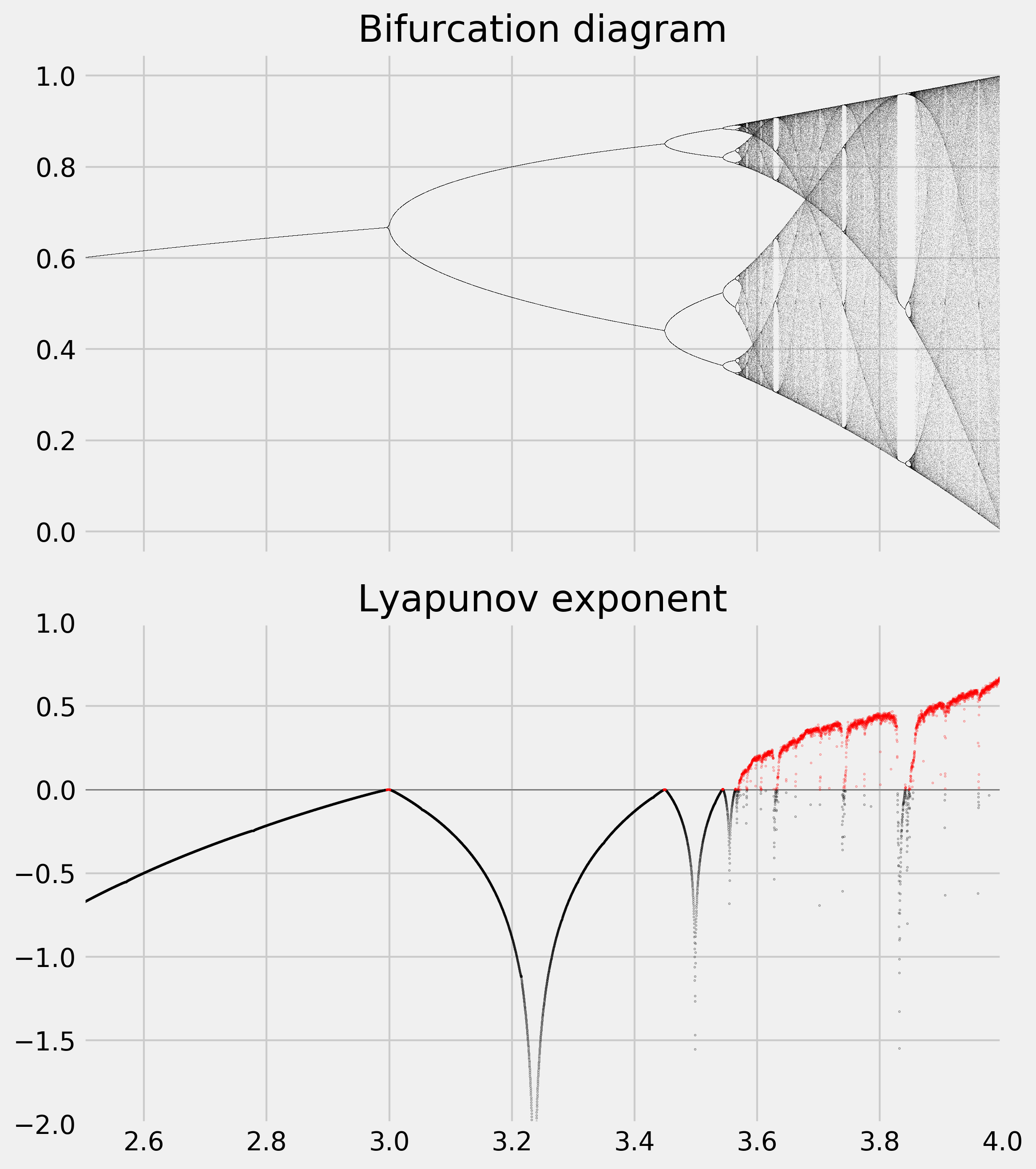Jupyter Snippet CB2nd 01_bifurcation
Jupyter Snippet CB2nd 01_bifurcation
12.1. Plotting the bifurcation diagram of a chaotic dynamical system
import numpy as np
import matplotlib.pyplot as plt
%matplotlib inline
def logistic(r, x):
return r * x * (1 - x)
x = np.linspace(0, 1)
fig, ax = plt.subplots(1, 1)
ax.plot(x, logistic(2, x), 'k')

def plot_system(r, x0, n, ax=None):
# Plot the function and the
# y=x diagonal line.
t = np.linspace(0, 1)
ax.plot(t, logistic(r, t), 'k', lw=2)
ax.plot([0, 1], [0, 1], 'k', lw=2)
# Recursively apply y=f(x) and plot two lines:
# (x, x) -> (x, y)
# (x, y) -> (y, y)
x = x0
for i in range(n):
y = logistic(r, x)
# Plot the two lines.
ax.plot([x, x], [x, y], 'k', lw=1)
ax.plot([x, y], [y, y], 'k', lw=1)
# Plot the positions with increasing
# opacity.
ax.plot([x], [y], 'ok', ms=10,
alpha=(i + 1) / n)
x = y
ax.set_xlim(0, 1)
ax.set_ylim(0, 1)
ax.set_title(f"$r={r:.1f}, \, x_0={x0:.1f}$")
fig, (ax1, ax2) = plt.subplots(1, 2, figsize=(12, 6),
sharey=True)
plot_system(2.5, .1, 10, ax=ax1)
plot_system(3.5, .1, 10, ax=ax2)

n = 10000
r = np.linspace(2.5, 4.0, n)
iterations = 1000
last = 100
x = 1e-5 * np.ones(n)
lyapunov = np.zeros(n)
fig, (ax1, ax2) = plt.subplots(2, 1, figsize=(8, 9),
sharex=True)
for i in range(iterations):
x = logistic(r, x)
# We compute the partial sum of the
# Lyapunov exponent.
lyapunov += np.log(abs(r - 2 * r * x))
# We display the bifurcation diagram.
if i >= (iterations - last):
ax1.plot(r, x, ',k', alpha=.25)
ax1.set_xlim(2.5, 4)
ax1.set_title("Bifurcation diagram")
# We display the Lyapunov exponent.
# Horizontal line.
ax2.axhline(0, color='k', lw=.5, alpha=.5)
# Negative Lyapunov exponent.
ax2.plot(r[lyapunov < 0],
lyapunov[lyapunov < 0] / iterations,
'.k', alpha=.5, ms=.5)
# Positive Lyapunov exponent.
ax2.plot(r[lyapunov >= 0],
lyapunov[lyapunov >= 0] / iterations,
'.r', alpha=.5, ms=.5)
ax2.set_xlim(2.5, 4)
ax2.set_ylim(-2, 1)
ax2.set_title("Lyapunov exponent")
plt.tight_layout()
